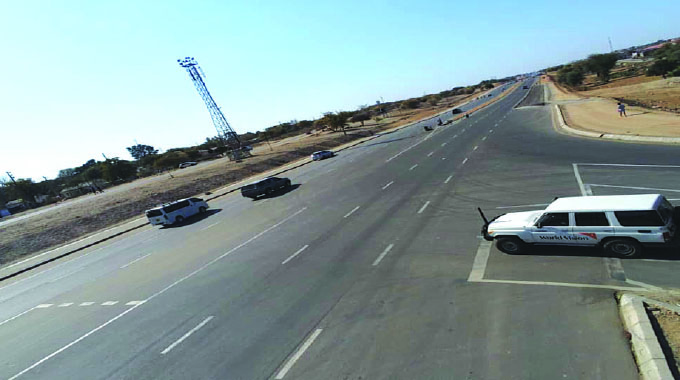Boost for border efficiencies, revenue flows

INFRASTRUCTURE developments taking place on the road network and at the Beitbridge Border Post will enable more traffic to pass through the country and increase revenue inflows.
Shipping and Forwarding Agents Association of Zimbabwe (SFAAZ) board chairman Godfrey Muswere said the ongoing refurbishment of the road network and the Beitbridge Border post would increase efficiency and boost revenue generation.
“Beitbridge is the biggest border post going to the North, and with the new roads that are being built, we will certainly get more traffic passing through the country, which is revenue for Zimbabwe,” he said.
“When we have better infrastructure that means more efficiency for our operations.”
Upgrading of the Beitbridge Border Post, which is almost complete, is expected to end the bottlenecks that were previously experienced in the movement of people and cargo at the country’s busiest port of entry.
The bottlenecks also created security challenges, as they enabled the smuggling of both humans and goods across the border.
Besides traffic between Zimbabwe and South Africa, the Beitbridge Border Post also serves as a transit point for the Southern African Development Community (SADC) region.
To address the challenges at the border post, the Second Republic entered into a 17-and-a-half year private-public partnership (PPP) agreement with the Zimborders consortium, which secured $300 million to fund the upgrading and modernisation.
The Government is also upgrading the Beitbridge-Harare-Chirundu highway, to facilitate the smooth flow of traffic and improve the ease of doing business in the region.
Meanwhile, Muswere took the opportunity to highlight the negative impact that Covid-19 had on SFAAZ members, who he said were slowly getting back to their previous capacity.
“We were greatly affected, especially in the beginning, because the way we work is through face-to-face interaction,” he said.
“For example, we deal with the Zimbabwe Revenue Authority where we submit documents, all of that was halted. Physical examinations had to be done in special ways, including in offices. Many Customs and ZIMRA officers actually contracted Covid-19 and operations had to stop.”
Muswere said operations were gradually returning to normal after most the lifting of most Covid-19 restrictions following the lull in cases. – New Ziana.






Comments